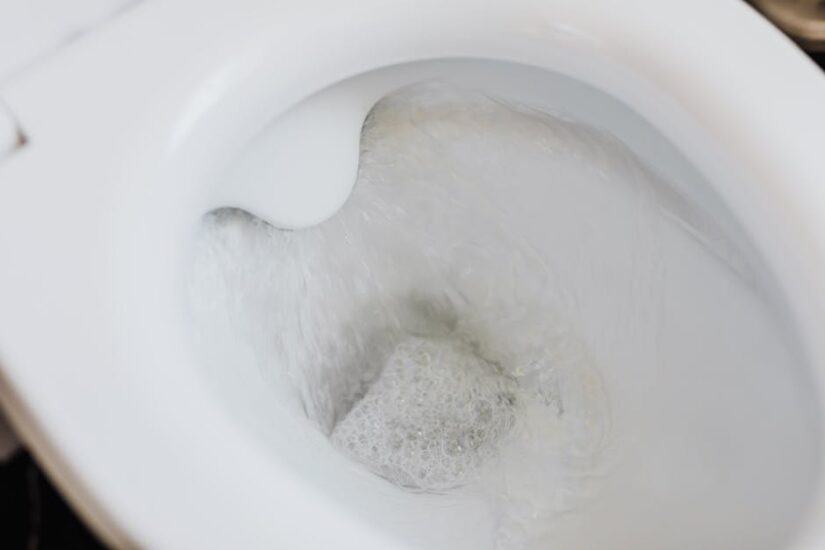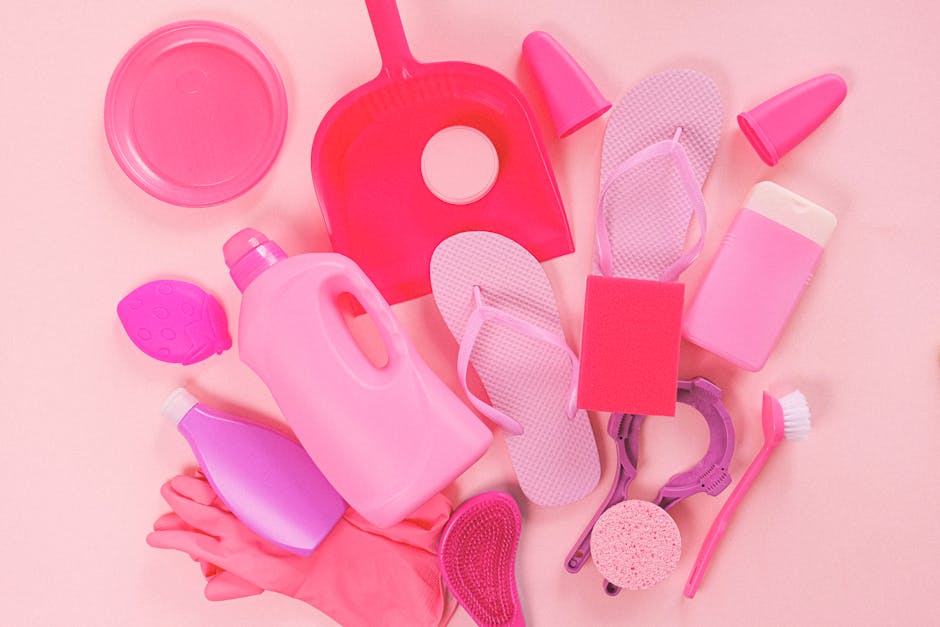The Essential Guide to Commercial Drain Cleaners: What You Need to Know
By Brian on July 10, 2024

Why Understanding Commercial Drain Cleaners Matters
What is a commercial drain cleaner? A commercial drain cleaner is a product used to dissolve clogs in plumbing systems, often found in businesses and homes. These cleaners usually come in liquid, gel, or powder form and contain powerful chemicals like sodium hydroxide or sulfuric acid to break down stubborn blockages.
- Types: Liquids, powders, and gels.
- Purpose: Dissolve clogs from grease, hair, soap scum, and other organic matter.
- Common Ingredients: Sodium hydroxide, sulfuric acid, sodium chloride.
Dealing with a clogged drain can be incredibly frustrating. Whether you’re a homeowner or a business owner, the last thing you want is slow-draining water or, worse, a complete blockage. In such moments, commercial drain cleaners seem like a quick fix. But, before you grab that bottle and pour it down the drain, it’s crucial to understand how these cleaners work and the potential risks involved.
Commercial drain cleaners are widely used due to their effectiveness and ease of application. Yet, their powerful chemical composition can also lead to pipe damage and safety hazards if not used correctly. Understanding the mechanics behind these products and their safe usage is key to preventing costly plumbing repairs and ensuring a hassle-free experience.

What is a Commercial Drain Cleaner?
A commercial drain cleaner is a specially formulated product designed to clear clogs and blockages in drainage systems. These products are commonly used in various settings, such as restaurants, offices, and homes, to tackle stubborn clogs that can’t be resolved with a plunger or plumbing snake.
Definition
Commercial drain cleaners come in several forms, including liquids, powders, and gels. They contain powerful chemicals that break down and dissolve the buildup inside your pipes, such as grease, hair, soap scum, and other organic matter. The primary goal is to restore water flow by eliminating the blockage.
Applications
These cleaners are highly versatile and can be used in:
- Kitchens: To clear grease and food waste from sinks.
- Bathrooms: To remove hair and soap scum from showers and tubs.
- Commercial settings: Such as restaurants, where grease traps and kitchen sinks frequently clog.
- Industrial buildings: Where various types of waste can cause blockages.
Types
Commercial drain cleaners can be categorized into three main types: chemical, enzymatic, and mechanical.
Chemical Drain Cleaners
Chemical drain cleaners are the most common type. They use strong chemicals like sodium hydroxide (caustic soda) and sulfuric acid to break down clogs. These cleaners work quickly but can be harsh on pipes if used frequently.
Example: A cleaner containing sodium hydroxide reacts with grease to form soap and glycerol, which are more soluble and easier to wash away.
Enzymatic Drain Cleaners
Enzymatic drain cleaners use natural enzymes and bacteria to break down organic material. These are eco-friendly options suitable for regular maintenance and less severe clogs.
Example: An enzymatic cleaner might use bacteria to digest the organic matter in a clog, turning it into harmless byproducts.
Mechanical Drain Cleaners
Mechanical drain cleaners involve tools like snakes, augers, and hydro-jets. These methods physically remove the clog rather than dissolving it.
Example: A plumbing snake is inserted into the drain to pull out or break apart the clog.
Understanding what is a commercial drain cleaner helps you choose the right one for your needs. Each type has its own advantages and is suited to different kinds of clogs and applications.
Types of Commercial Drain Cleaners
When it comes to commercial drain cleaners, there are three main types: chemical, enzymatic, and mechanical. Each type works differently and is suited for various kinds of clogs and applications.
Chemical Drain Cleaners
Chemical drain cleaners are the most common type. They use powerful chemicals to break down clogs. There are three main categories:
- Corrosive: These contain caustic substances like sodium hydroxide (lye) that generate heat to dissolve clogs.
- Oxidizing: These cleaners use chemicals like bleach that release oxygen to break apart organic materials.
- Acidic: These contain strong acids like sulfuric acid that quickly dissolve tough clogs.
Example: Green Gobbler Main Line Opener is a top-performing alkaline cleaner that effectively dissolves pet hair, organic compounds, and grease.

Enzymatic Drain Cleaners
Enzymatic drain cleaners are eco-friendly and use natural enzymes and bacteria to break down organic materials. They’re ideal for regular maintenance and preventing future clogs.
- Bio-based: Made from natural enzymes, these cleaners are safe for the environment and less harsh on pipes.
- Eco-friendly: They don’t contain harmful chemicals, making them safer for homes with septic systems.
- Maintenance: Best used regularly to keep drains clear and free-flowing.
Example: Noble Chemical EDM+ QuikPack is a concentrated enzymatic drain maintainer that helps prevent buildup.

Mechanical Drain Cleaners
Mechanical drain cleaners use physical tools to remove clogs. These are often used by professionals for more severe blockages.
- Snakes: Flexible rods inserted into the drain to break apart or pull out clogs.
- Augers: Similar to snakes but often motorized for tougher clogs.
- Hydro-jets: Use high-pressure water to blast away blockages and clean the insides of pipes.
Example: A hydro-jet can clear even the toughest clogs by using water pressure to clean the entire pipe.
Understanding the different types of commercial drain cleaners can help you choose the right one for your needs. Each type has its own advantages and is suited to different kinds of clogs and applications.
Next, we’ll explore how these commercial drain cleaners work, including the chemical reactions and physical methods involved.
How Commercial Drain Cleaners Work
Understanding how commercial drain cleaners work can help you use them effectively and safely. There are two main methods: chemical reactions and physical removal.
Chemical Reaction in Drain Cleaning
Chemical drain cleaners use powerful reactions to break down clogs. Here’s how it works:
-
Caustic Reactions: Caustic cleaners, like those with sodium hydroxide, react with water to generate heat. This heat helps dissolve clogs made of grease, hair, and soap scum.
-
Oxidizing Reactions: Some cleaners use oxidizing agents, like bleach or nitrates, that release oxygen. This breaks down organic matter and helps clear the clog.
-
Acidic Reactions: Acidic cleaners, often containing sulfuric acid, dissolve clogs by breaking down proteins and other organic materials. These are very effective but also more hazardous.
Safety Concerns: Always wear gloves, goggles, and a mask when handling chemical cleaners. Never mix different types of cleaners, as this can cause dangerous reactions.
Example: A common mistake is pouring water into acid, which can cause a violent reaction. Instead, always pour acid into water if needed.
Physical Methods for Drain Cleaning
Sometimes, physical methods are more effective or necessary. Here are the most common ones:
-
Snaking: A flexible rod, or snake, is inserted into the drain to break up and remove clogs. This method is good for minor blockages and is often used in homes.
-
Hydro-jetting: This method uses high-pressure water to blast away blockages and clean the insides of pipes. Hydro-jetting is effective for stubborn clogs and even small tree roots.
-
Inspection Tools: Professionals often use in-line cameras to inspect pipes and locate clogs. This helps determine the best method for removal and ensures the clog is fully cleared.
Example: A hydro-jet can clear even the toughest clogs by using water pressure to clean the entire pipe.
Preventative Maintenance
Regular maintenance can prevent clogs from forming in the first place. Here are some tips:
-
Use Enzymatic Cleaners: These bio-based cleaners use natural enzymes to break down organic matter. They are safe for regular use and eco-friendly.
-
Regular Inspections: Schedule periodic inspections to catch potential issues before they become major problems.
-
Avoid Non-Biodegradable Items: Ensure that items like toys or construction debris do not go down the drain, as these cannot be dissolved by chemical cleaners.
Understanding how commercial drain cleaners work can help you choose the right method for your needs and ensure safe and effective use.
Next, we’ll cover the best practices for using commercial drain cleaners, including safety tips and how to choose the right cleaner for your pipes.
Best Practices for Using Commercial Drain Cleaners
When dealing with clogged drains, using the right commercial drain cleaner and following safety precautions is crucial. Here’s what you need to know:
Choosing the Right Drain Cleaner
Pipe Compatibility: Not all drain cleaners are safe for every type of pipe. Always check the label to ensure the cleaner won’t harm your pipes.
Clog Severity: Different cleaners work better on different types of clogs. For lighter clogs, a milder product might be sufficient and more cost-effective.
Environmental Impact: If you’re concerned about the environment, opt for enzymatic cleaners. These are bio-based and eco-friendly, making them a great choice for regular maintenance without harming your pipes or the environment.
Safety Precautions
Personal Protective Equipment (PPE): Always wear gloves, safety glasses, and a mask when handling chemical drain cleaners. These products contain harsh chemicals that can cause burns or respiratory issues.
Proper Usage: Follow the instructions on the label carefully. For example, most cleaners require a waiting period before flushing with hot water. Using cold water can cause chemicals to solidify, worsening the clog. Avoid overusing these products, as they can damage your pipes if used too frequently.
Emergency Procedures: Be prepared for accidents. If you accidentally get chemicals on your skin or in your eyes, rinse immediately with plenty of water and seek medical attention. Keep the contact information for your local poison control center handy.
In the next section, we’ll answer some frequently asked questions about commercial drain cleaners, including the types of clogs they handle best and how often they should be used for maintenance.
Frequently Asked Questions about Commercial Drain Cleaners
What types of clogs are best handled by commercial drain cleaners?
Commercial drain cleaners are effective against a variety of clogs. They work best on:
-
Organic clogs: These include hair, soap scum, and grease. Chemical drain cleaners, especially those with caustic or oxidizing agents, can dissolve these materials efficiently.
-
Paper products: Toilet paper and paper towels can be broken down by both chemical and enzymatic drain cleaners.
-
Food waste: Enzymatic cleaners are particularly good for breaking down organic food particles in kitchen drains.
However, non-biodegradable items like toys or construction debris will not be cleared by these cleaners. For such blockages, mechanical tools like snakes or augers are required.
How often should commercial drain cleaners be used for maintenance?
The frequency of use depends on the type of cleaner and the specific needs of your plumbing system:
-
Enzymatic drain cleaners: These are safe for regular use and can be applied monthly to prevent buildup and maintain clear drains.
-
Chemical drain cleaners: These should be used sparingly, no more than a few times a year. Overuse can damage pipes, especially older ones or those made of certain materials.
-
Mechanical methods: Tools like snakes or hydro-jets should be used as needed, typically when a clog is already present.
Regular maintenance with the right products can prevent major clogs and keep your drainage system in optimal condition.
Are commercial drain cleaners safe for all types of plumbing systems?
Not all commercial drain cleaners are safe for every type of plumbing system. Here are key considerations:
-
Pipe Material: Some chemicals can corrode certain materials. For instance, older metal pipes might be damaged by acidic or caustic cleaners. Always check the product label to ensure compatibility with your pipes.
-
Septic Systems: Enzymatic cleaners are generally safe for septic systems, as they use natural bacteria to break down clogs. Chemical cleaners, however, can disrupt the balance of bacteria in septic tanks.
-
Environmental Impact: Enzymatic and bio-based cleaners are eco-friendly options that are safe for most plumbing systems and the environment.
When in doubt, consult a professional plumber to choose the best product for your specific plumbing system and clog type.
In the next section, we’ll wrap up by discussing the overall benefits of using commercial drain cleaners, along with some preventative tips to keep your plumbing system running smoothly.
Conclusion
Benefits of Commercial Drain Cleaners
Using commercial drain cleaners can save us a lot of time and hassle. They quickly dissolve clogs, restoring water flow and preventing further damage to our plumbing system. This can be especially beneficial for businesses where downtime can mean lost revenue.
Professional drain cleaners can handle tough clogs that DIY methods often can’t. They also help in maintaining a healthy and odor-free environment by removing debris and preventing the buildup of harmful bacteria.
Preventative Tips
Regular maintenance is key to avoiding major plumbing issues. Here are some tips:
-
Regular Cleaning: Schedule periodic cleanings using enzymatic drain cleaners. They are eco-friendly and help maintain the health of your pipes.
-
Avoid Harsh Chemicals: Overusing chemical cleaners can damage your pipes. Use them sparingly and follow the manufacturer’s instructions.
-
Dispose of Waste Properly: Avoid flushing large or inappropriate items down the drain. This can prevent clogs and save you from future headaches.
-
Install Drain Screens: These can catch hair, food particles, and other debris before they enter your plumbing system.
Go Pro Plumbing
At Go Pro Plumbing, we understand the importance of a well-maintained drainage system. Our team of experts is equipped to handle any clog, big or small. We offer comprehensive commercial drain cleaning services that ensure your plumbing system remains in top condition.
From regular maintenance to emergency services, we’ve got you covered. Reach out to us for reliable, professional, and efficient solutions to all your plumbing needs.
By following these tips and leveraging our professional services, you can ensure a smooth-running plumbing system that supports your business’s success. Don’t wait for a clog to disrupt your operations—take proactive steps today!

